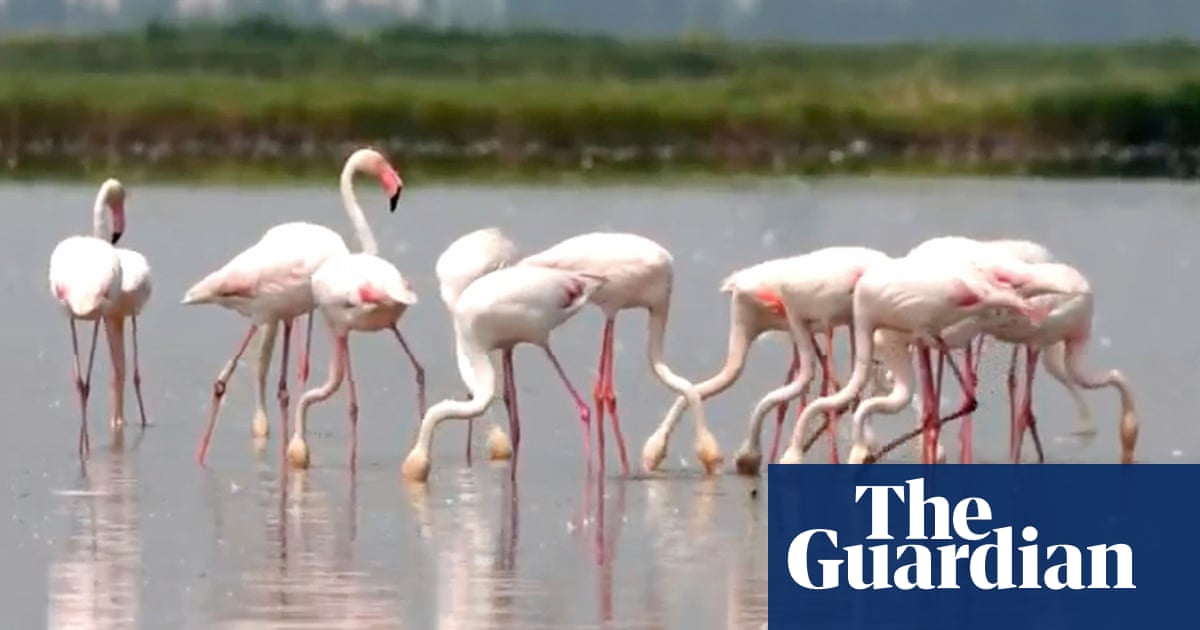Farmers are seeking ways to fend off birds who are stirring up soil in flooded paddy fields in Ferrara province
An unusual bird is ravaging crops and infuriating farmers in north-eastern Italy: the flamingo.
Flamingos are relatively recent arrivals in the area, and have settled into the flooded fields that produce rice for risotto in Ferrara province, between Venice and Ravenna.
The birds aren’t targeting the rice seedlings but use their webbed feet to stir up the soil and snatch molluscs, algae or insects from the shallow water. The rice is collateral damage.
Could they do the thing that airports do with geese, where they get a Labrador to run around and bark at the birds and the birds say, “Ehh… fuck this area” and leave of their own accord?
Edit: See responses for why this probably wouldn’t work. Nonetheless, if I was a grower I might look into it anyway just to see what happens. How much could a dry corner of a field affect margins anyway…
Fun fact: Rice can be grown in the dry. The reason it’s grown in the wet is that, unlike other grasses, it tolerates being grown in the wet, and so the water protects the rice from unspecified environmental factors.
My point here being the question as to whether the factors that destroy rice in the dry are worse than these flamingos. And if not, there’s a solution presenting itself here.
Or you could make a great recipe of risotto with flamingo meat. Just saying.
Taste just like chicken
My first thought.
I don’t think it’s unspecified, it’s to keep weeds away. Using weed killing chemicals to kill off any plants in your field apart from the specially-weed-killer-resistant crops is super common in agriculture, and is terrible for the environment.
You seem to be against the idea of growing rice in flooded fields, can I ask why? It’s not like this is in some places like California that’s in constant drought.
Not OP but in addition to the water consumption you already mentioned, flooded rice fields also produce a lot of methane due to the oxygen-free conditions at the bottom and the abundance of organic material.
This could be mitigated if fields would be drained periodically.
There are quite a few dryland crops. The rice usually used for Risotto, in this case Arborio, is not one of them.
I’m pretty sure that even if you grew Arborio as a dryland that you couldn’t sell it as Arborio because of DOP. Which would change its flavor, probably its starch balance, and decrease its price.
You know, in addition to making risotto, another thing the Italians are pretty good at is making shotguns. So this problem should be solvable.



